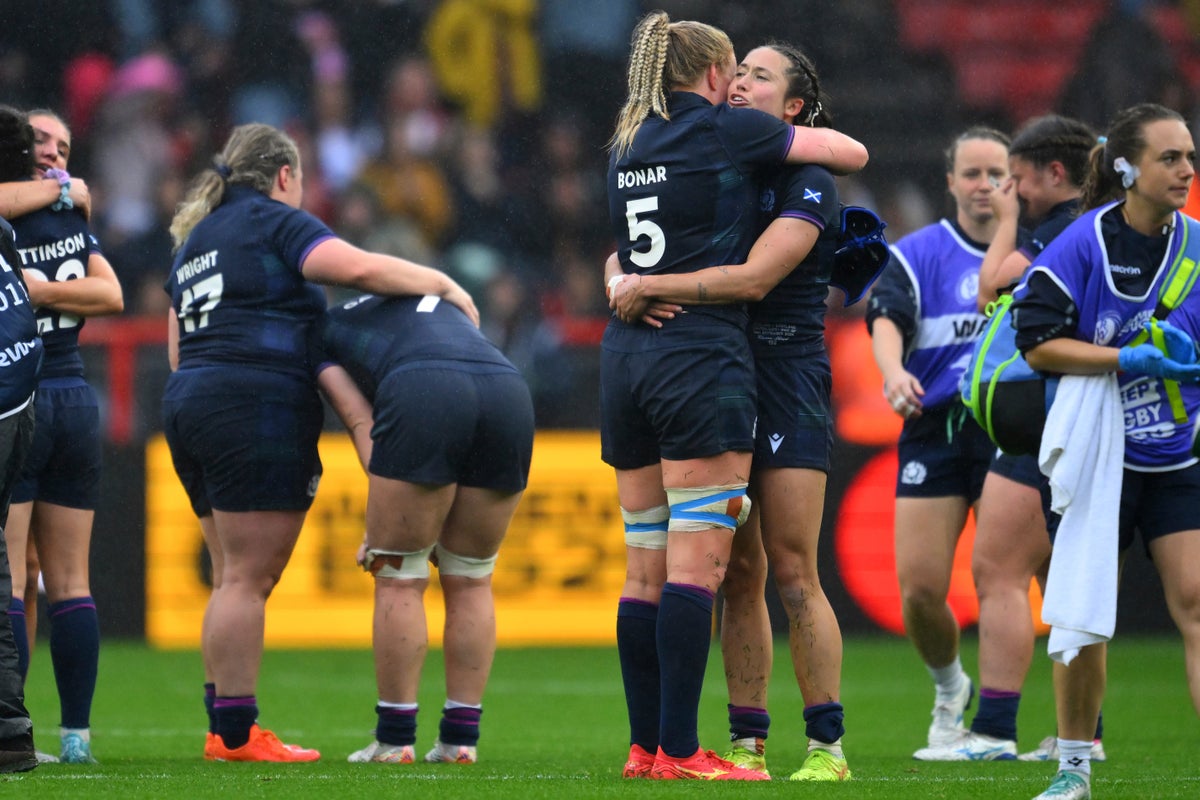
It is England and Canada who advanced to the final four of the Women’s Rugby World Cup from Ashton Gate at the weekend but perhaps the more significant statements were made by the sides beaten in Bristol. Neither Scotland nor Australia came particularly close to causing a tournament upset, an eventuality that was always unlikely, but there was a certain shared unity in the manner in which each reflected on a campaign in which they had made great strides.
The sense from both, though, was of an uncertain future and news to imperil their progress. Most striking of all were the comments from Jade Konkel, Scotland’s talismanic No 8, who called a premature end to her time in an international shirt having decided to go out on her terms having not been offered a contract beyond this tournament. She was far from the only player within the Scottish squad operating under such circumstances; captain Rachel Malcolm predicted post-match that more retirements could be on the way, even if she had not considered her own future.
“It's been a tough couple of months with all of us getting bombshells dropped on us right before a World Cup, which is not the best prep," Konkel told the BBC after the 40-8 defeat to the Red Roses, with the back row reported to be one of 17 members of the 32-player World Cup squad not offered a contract.
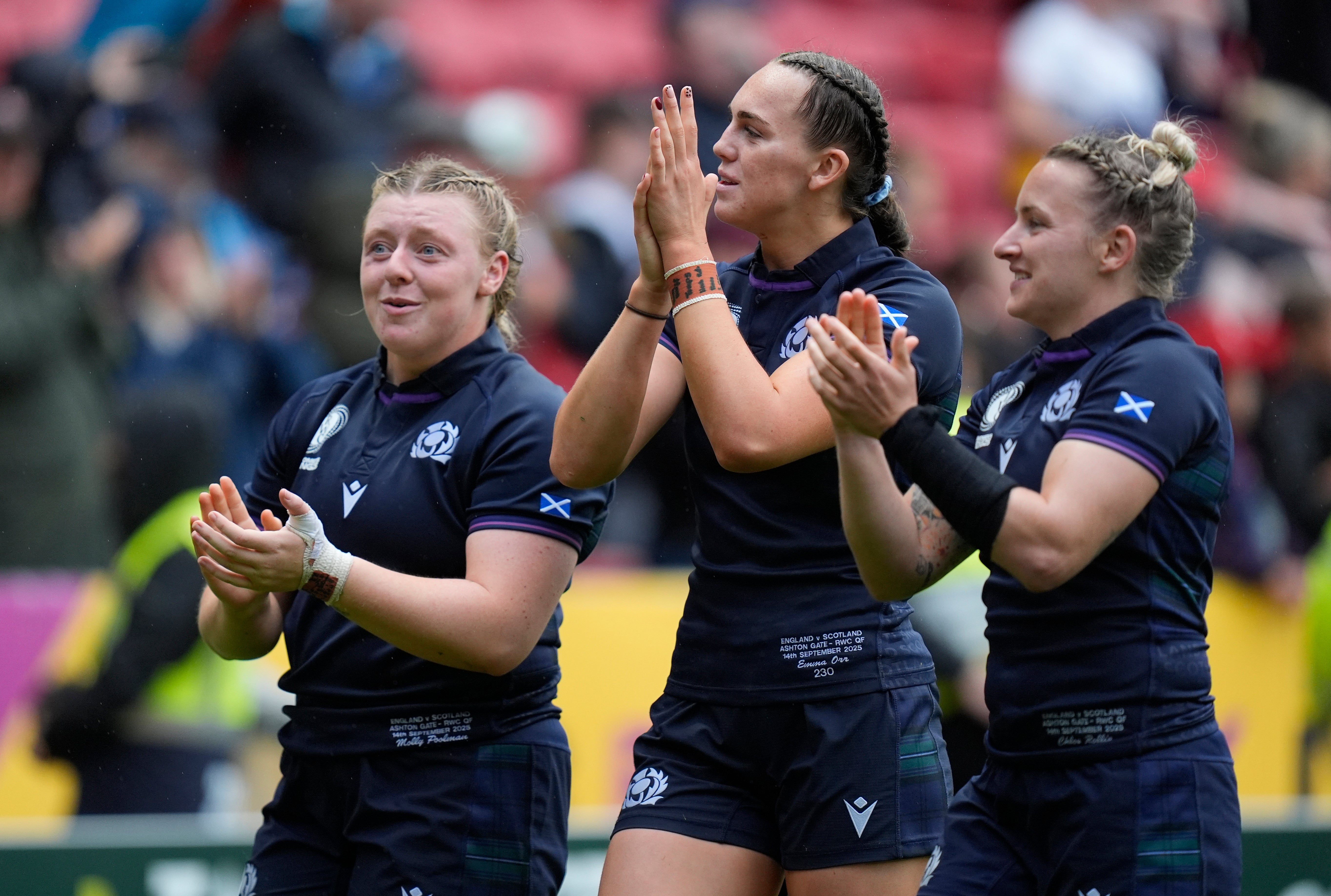
"There's been so many small conversations, background noise, and the fact that we made it to a quarter-final is - I'm not going to lie - through no help of the SRU [Scottish Rugby Union]. They've made our build-up to this really challenging, mentally and emotionally. We appreciate the long-term plan, but the timing of it was less than ideal. People were doing job interviews and worrying about what they'd be doing post-tournament.”
Welcome, again, to the uncomfortable conversations that the women’s game can’t seem to escape. The emotion in wing Rhona Lloyd’s eyes after she went over for a late consolation in the right corner reflected how much this tournament has taken out of a tight-knit squad that have clearly not felt fully backed by their employers. The SRU have indicated that they would like more contracted players back in Scotland, rather than plying their trade in England’s Premiership Women’s Rugby (PWR) – but the consistency of competition and elite-level programmes on offer south of the border have been vital to the squad’s development so far. It is thought more contract offers might be coming – but the retirements of Konkel and tighthead prop Lisa Cockburn indicate that talent is already being lost.
Both Malcolm and head coach Bryan Easson, who leaves his role in the coming weeks, put on brave faces as they called for fresh investment and certainty over the future. Easson’s exit, despite meeting performance targets, clearly hit the squad hard, while there was wider backroom upheaval – the timing of the departures of Matt Banahan and Fraser Brown, who had done good work as assistants, in the months before a major tournament were strange, with each man taking up new opportunities in PWR.
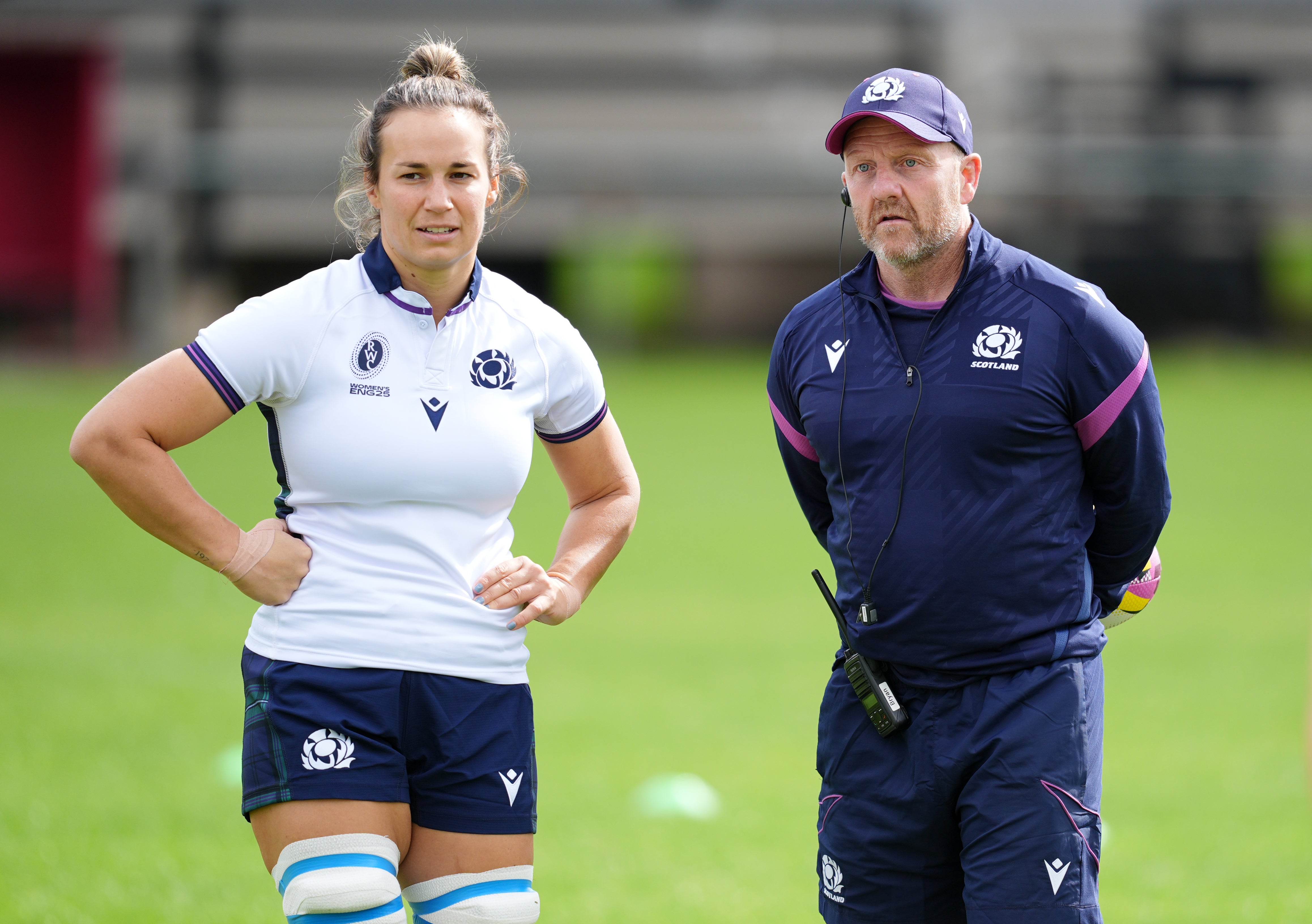
Yet Scotland have still made significant progress over the last few weeks. All – from opposing coaches and players to World Rugby chiefs – have described them as playing their best rugby in years; “testament to them as a squad”, England back Helena Rowland – a teammate and close friend of several Scots at Loughborough – stressed, with hope that they had proved they were worth investing in.
Much the same could be said of an Australian side for which a crucial four years awaits in the run-up to a home World Cup. The Wallaroos did not produce their best against Canada, with surprise even in the Canadian camp at their failure to “fire many shots”, but a return to the quarter-finals was an achievement nonetheless and the opening half-hour against England a week prior reflected a side of developing maturity and threat.
Australia are regarded by many in the women’s game as a potential future power given the athletes the nation consistently unlocks, and the age profile of the team developed under the last two years by Jo Yapp. The outgoing head coach, who will return to England with her contract at an end, has consciously put youngsters in key positions: 18-year-old Caitlyn Halse is a star of the future while her three fly half options at this tournament were 22, 20 and 17.
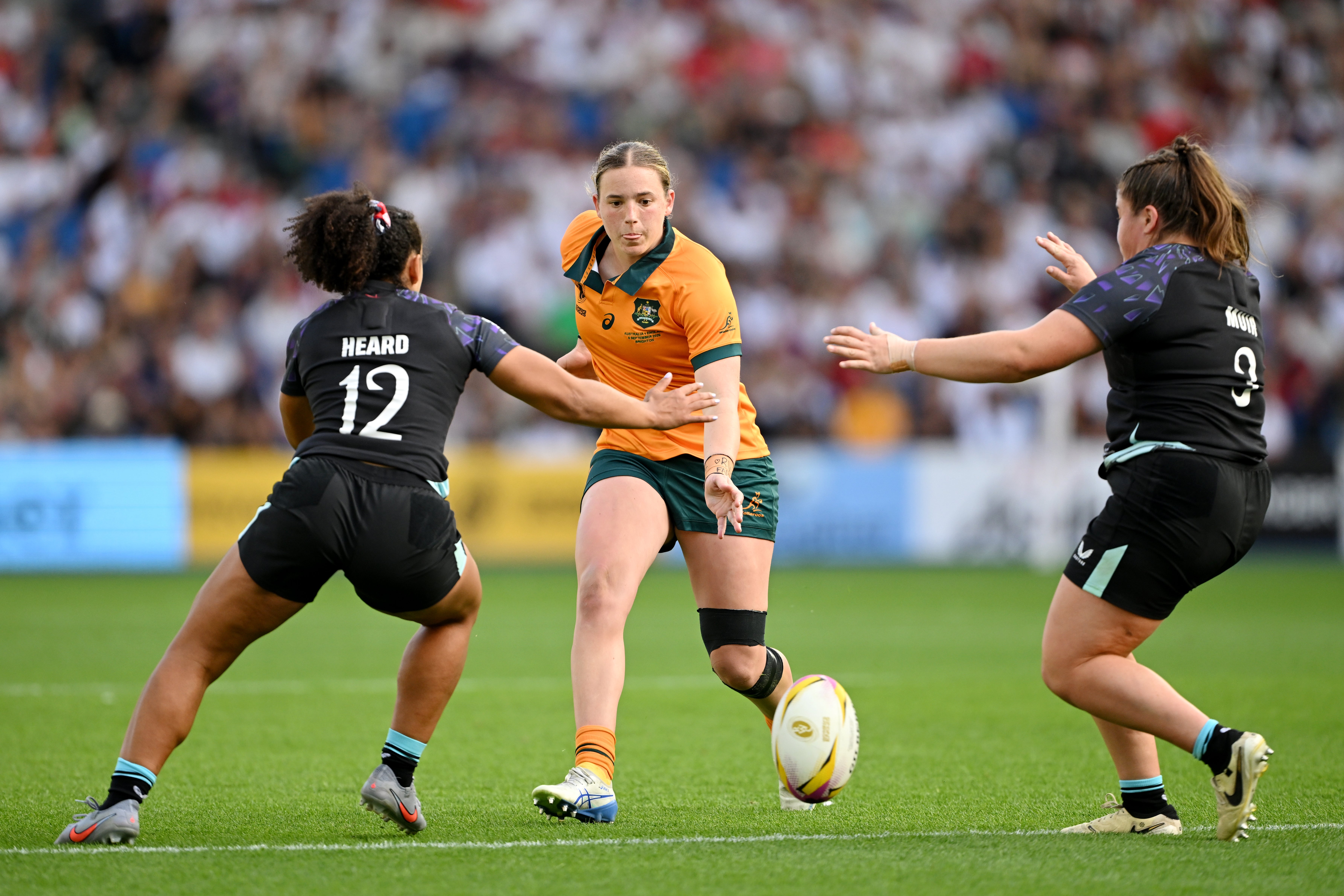
But their inexperience has shown at times. While Super W is developing, there were still just 13 domestic games on offer in the competition this year; where the Red Roses, for example, are able to leave out two centurions in Emily Scarratt and Marlie Packer from their matchday squad, Australia have celebrated major milestones in recent weeks with their first three players in history surpassing 40 caps. Stability of the environment will be key – Yapp’s replacement is a vital appointment through which Rugby Australia can display both their commitment and ambition.
“We need continuity,” were captain Siokapesi Palu’s parting words on Saturday night. “We need to be able to become full-time; we are not a full-time programme right now. We are looking at a group of players who are young mums, people who are balancing looking after their kids, working full-time 9-5 and then having to back it up with training until 9pm and having to back it up the next day.
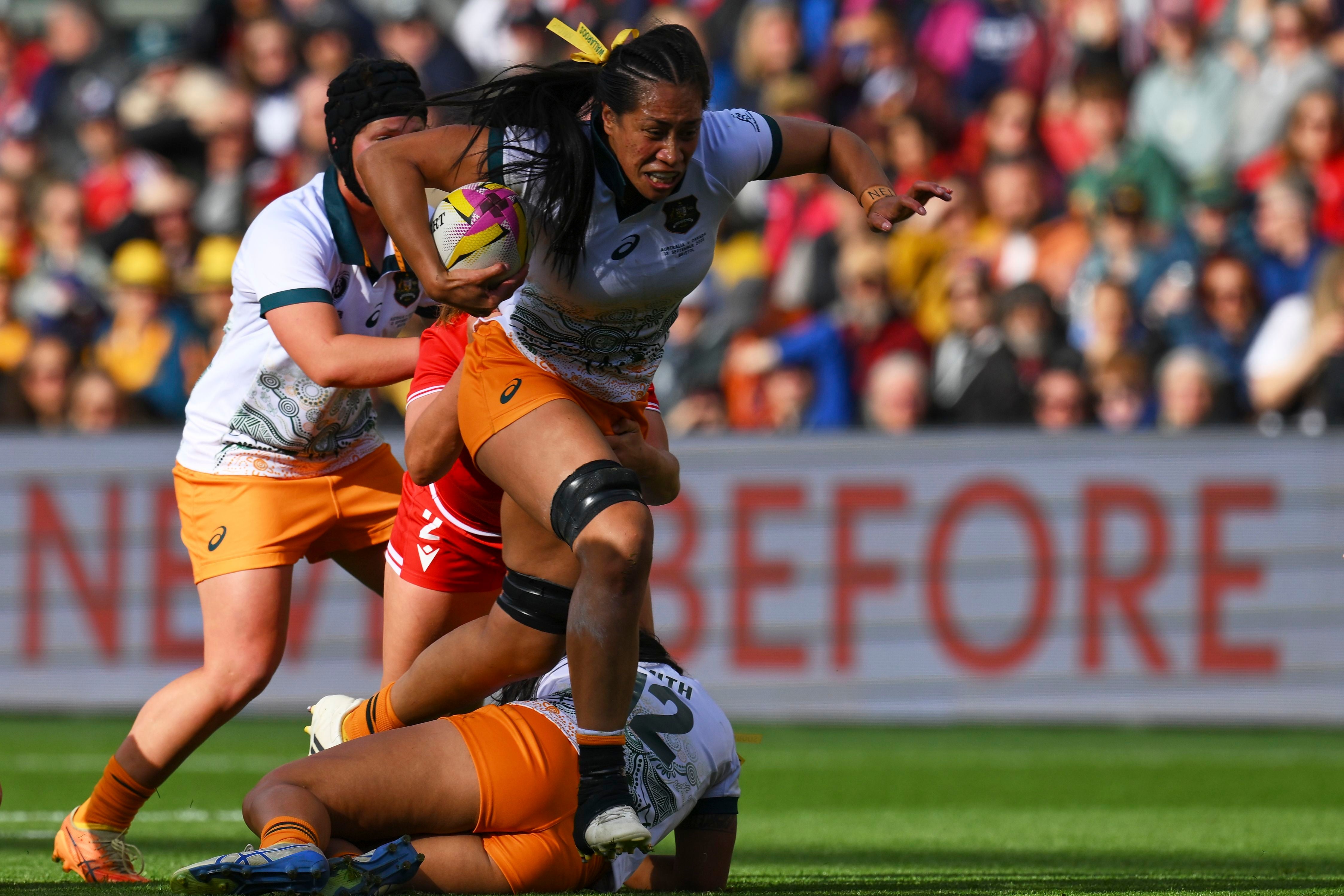
“It sounds cliché but we need to be invested in so we can produce good rugby. Looking at the age and experience of Canada compared to us, we are far from it. I have confidence that building into Rugby World Cup 2029, we are going to be good because we’ve got such a young side that is going to have so much experience going into that point.”
A tournament that has platformed female rugby players like never before has also displayed that the landscape beyond remains rocky.
France star Axelle Berthoumieu given 12-match ban after biting opponent at Women’s World Cup
The super-strengths and superstar that make Canada World Cup contenders
Why are there so few female head coaches at the Women’s World Cup?
France star given 12-match ban for biting opponent at Women’s World Cup
France forward cited after alleged bite in Women’s World Cup win over Ireland
Record-breaking England crush Scotland to power into World Cup semi-finals







